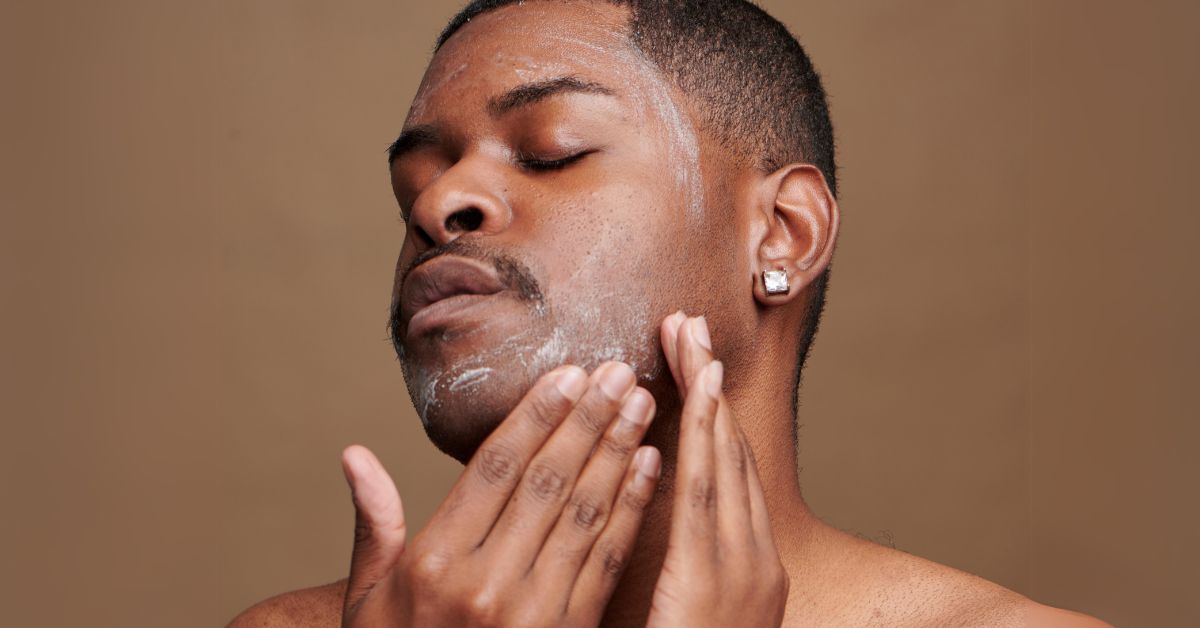BY: Singleton
Published 4 days ago

Beauty products and skincare have come a long way over the decades. Many view a proper skincare routine as a feminine act, but the truth is that everyone wants to look and feel good. This very human desire dates back thousands of years. Ancient Egyptian society, for example, embraced makeup and eyeliner. They also had their own skincare routines to maintain healthy skin.
Maintaining a good skincare routine is essential for those who want to look and feel their best, especially for people who wear a lot of makeup. Everyone has a different skin type, so it’s important to understand how to take care of it properly. There is one common thread for healthy skin: the order of each step in the routine — cleanse, tone, treat, and moisturize. However, everyone’s skin is a little different. That said, a solid nightly routine gives your skin the time to heal and restore itself. If you’re ready to get some intel on how to care for your skin, look no further. Here are some tips for your nighttime skincare routine order for all skin types.
1. Combination Skin Nighttime Routine Tips

Most people have combination skin, characterized by an oily T-zone—the forehead, nose, and chin—and dryness in other areas. Those with combination skin should start with a gentle cleanser to address the oily T-zone while ensuring dry skin isn’t irritated. Gentle cleansers often contain moisturizing elements like hyaluronic acid, so it’s important to check the ingredients on the label before purchasing.
Toning is the second and most crucial step for combination skin. Toners designed to create balance are ideal for combination skin types. Look for a toner that is pH-balanced or contains moisturizers like hyaluronic acid or ceramides. Treatments for combination skin should be selected based on personal needs. Serums with niacinamide are great for acne-prone combination skin while hydrating and brightening serums work well for maintenance.
Next, show your eye area some TLC with a nourishing eye cream. Those with combination skin should also use a heavier moisturizer in their nightly routine and a lightweight moisturizer in the morning.
2. Dry Skin Nighttime Routine Tips

People with dry skin should ensure that their nightly routine contains moisturizing elements, from their cleanser to moisturizer. It’s important to check the ingredients in each product. Dermatologists recommend products with glycerin, ceramides, hyaluronic acid, and vitamins B, C, and E.
Although some people rule out toner for dry skin, adding the product to the equation will do your skin justice. Since some toners can be drying, it’s crucial to select gentle toners that include at least one of the ingredients above. Treatment serums or creams should also contain one or more moisturizing ingredients.
3. Oily Skin Nighttime Routine Tips

However, excess oil can lead to acne and clogged pores. Cleansing, toning, exfoliating, and moisturizing are essential for people with oily skin. Cleansers should contain salicylic acid to help reduce redness and unclog pores. Toners are most effective when they include salicylic, lactic, or glycolic acid. Exfoliants remove dead skin cells, work to smooth skin and remove excess oil. Treatments, such as serums with benzoyl peroxide, are effective for managing acne, and retinol serums are highly recommended for nighttime use on oily skin. Moisturizing your under-eye area and full face is still important, but it should be lightweight and water-based.
4. Normal Skin Nighttime Routine Tips

A small portion of people are genetically blessed with normal skin, but that doesn’t mean they don’t need a nightly skincare routine. Normal skin requires balance to stay healthy and radiant. Unlike other skin types, people with normal skin typically only need to cleanse, tone, and moisturize, as no additional treatment is necessary. A gentle cleanser and toner work best for this skin type. If they choose to add a treatment, a moisturizing serum like hyaluronic acid is ideal, followed by a lightweight eye cream and moisturizer.
Facial Masks Can Help With Oily and Dry Skin, But Exfoliation Is Different

Face masks can enhance any skincare routine, regardless of skin type. Most masks focus on hydration, so cream or gel-based masks work well for dry skin. People with oily skin benefit more from clay or mud masks, which help draw oil out of the pores. Those with combination skin can alternate between these types based on their current skin needs. Face masks should be used two to three times a week for dry, combination, and oily skin, while people with normal skin should use them once a week.
Exfoliation is different but essential for all skin types. People with dry or sensitive skin should exfoliate only once a week to avoid irritation. In contrast, those with combination, oily, or normal skin can exfoliate two to three times a week.
What does your nighttime skincare routine order consist of? Let’s talk about it in the comment section below!









